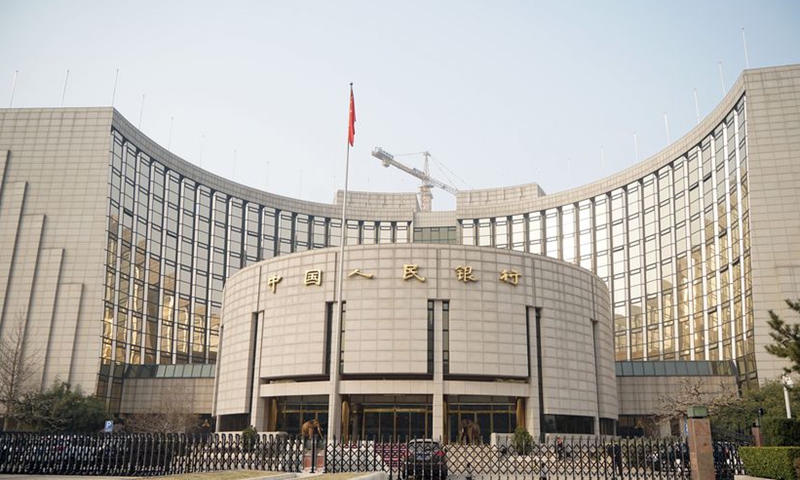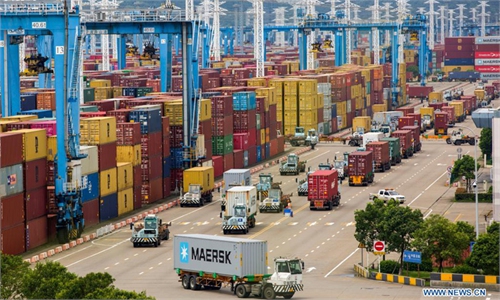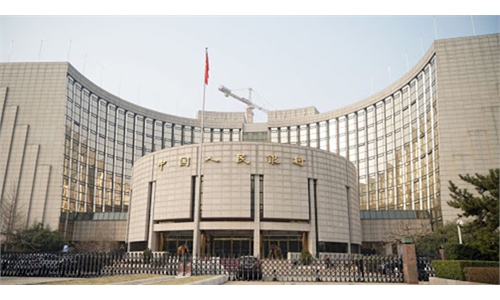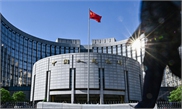Mainland-HK bond linkup to start southbound trading in landmark move for financial opening-up
A landmark move for financial opening-up

PBC Photo:Xinhua
The long-anticipated southbound leg of the bond trading linkup between the Chinese mainland and Hong Kong will be launched next week, officials announced on Wednesday, ending the suspense of the last four years after the availability of the northbound trading.
The announcement, hailed as a landmark step in the expansion of two-way opening-up of financial markets, is set to enable mainland investors to diversify their portfolios as well as facilitate foreign investment into the mainland bond market, industry insiders said, voicing optimism about Hong Kong and its growing profile in the global financial arena.
The southbound leg is scheduled to be launched on September 24, in a move to improve the two-way opening-up of the country's bond market and solidify Hong Kong's role as a bridgehead and hub connecting the mainland and the global markets, foster the city's incorporation into the country's grand development strategy and maintain its long-term prosperity and stability, the People's Bank of China (PBC), the central bank, said on Wednesday.
The annual quota for southbound trading under the bond connect is set at 500 billion yuan ($77.72 billion) with a daily quota of 20 billion yuan, said the PBC, which vowed to revise quotas in line with cross-border fund flows.
The long-awaited southbound leg came after the launch of the northbound trading in July 2017. Prior to the northbound availability, overseas investors' holdings of the country's bonds were valued at about 850 billion yuan, PBC data showed. The number has grown to 3.8 trillion yuan thus far with an average annual growth rate of over 40 percent.
Overseas investors under the southbound leg hold about 1.1 trillion-yuan worth of bonds, with accumulative transactions over the past four years hitting 12.3 trillion yuan, the central bank revealed, adding that 78 out of the world's top 100 asset management institutions have taken part in the trading.
Northbound trading has proved fruitful since its launch, effectively ramping up foreign investment's foray into China's bond market. The southbound trading announcement bodes well for the two-way bond market opening-up and meet mainland investors' demand for portfolio diversification, a spokesperson for Citibank China said in a statement sent to the Global Times on Wednesday. The US bank is one of the official bond connect trading dealers.
"The new initiative facilitates mainland institutional investors to allocate global bond assets through the Hong Kong market, while further promoting the two-way opening up of the financial markets on the mainland and Hong Kong," Sun Yu, vice chairman and chief executive of Bank of China (Hong Kong), said in a statement sent to the Global Times.
The introduction of southbound bond connection is indicative of national support for Hong Kong's development, according to Sun, noting that the move would likely increase the cross-border use of the yuan.
Dong Shaopeng, a senior research fellow at the Chongyang Institute for Financial Studies at Renmin University of China, said that the launch of the southbound leg of the bond link mechanism is a "gift" from the mainland to Hong Kong before the National Day holidays, and it is in line with the mainland's policy direction to maintain financial stability.
"Mainland investors' have exuberant needs to invest in financial products of different categories and in different regions. Also, as Hong Kong's economic and social order gradually recover, their financial markets need support from mainland capital and investors," Dong said, adding that the extension of the current bond link mechanism is a "natural move."
He also said that the bond link mechanism's improvement will further enhance Hong Kong's position as a global financial hub.
"Hong Kong is in a period of transition now. It used to rely on mainland assets, but now the trend is more and more evident that mainland capital is entering Hong Kong. As a result, the interaction between Hong Kong and the mainland also grows stronger," he said.
Zhou Yu, director of the Research Center of International Finance at the Shanghai Academy of Social Sciences, said the bond linkup would also prompt mainland financial institutions to "go global." For example, more mainland securities institutions will likely establish branches in Hong Kong, and invest in the Hong Kong bond markets.
Also, on Wednesday, Bloomberg, together with the China Foreign Exchange Trade System (CFETS), announced the launch of new solutions on September 24 to facilitate trading on southbound bond connect, which "will enable offshore dealers to provide market-making services for onshore investors," according to a statement sent to the Global Times.





